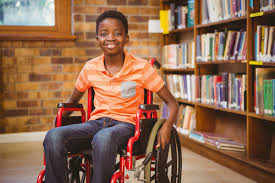Ihss Protective Supervision
Ihss Protective Supervision
Apply for Protective Supervision
Protective Supervision is part of the In-Home Support Services (IHSS) program in California, which are services paid for by state governments to help keep children who are disabled to safely remain at home with their parents. It is for children and adults with a mental impairment that have self-harming and or dangerous behaviors that they engage in without regard to consequences. These behaviors must be regularly occurring and random. That is why they need someone to supervise them 24 hours a day 7 days a week to minimize injury to themselves.
If you are raising a child with a disability such as autism, Down syndrome or cerebral palsy, you might be eligible for Protective Supervision, which allows financial support of up to $3,000 per month.
If your child engages in any behaviors that put them at risk for harm or injury without awareness of consequences, you should pursue getting Protective Supervision.
Apply for Protective Supervision
If you feel your child might meet the qualifications, call your social worker and ask for an assessment for IHSS Protective Supervision.
Because case workers are so overloaded, you must keep calling every single week and checking in if you have an open case waiting for a decision. Additionally, you must have these documents organized and ready to submit:
- Dangerous Behavior Log: a list of any self-harming behaviors your child has shown over the past six to 12 months.
- IHSS SOC 821 Protective Supervision Form: print this form and take it, along with the dangerous behavior log, to the doctor who treats your child.
- Regional Center Individual Program Plan (IPP):This is a document created by the Regional Center. An IPP identifies the goals for your child, who will provide services or support to reach these goals and if there is a cost associated with the service or support, who will fund it.
- Client Development Evaluation Report (CDER):this is a document created by the Regional Center. It’s a summary of your child’s abilities and the challenges associated with his or her disability.
- Individualized Education Program (IEP): this document will be created by your child’s school. The IEP outlines that your child is eligible for special education and related services to benefit from the general education program. It’s not a contract, but it does guarantee the necessary support and services that are agreed upon and written for your child.
Contact us for help. Dial (877) 283-4807 or email us at info@americandisabilityassociation.org.


Comments
Post a Comment